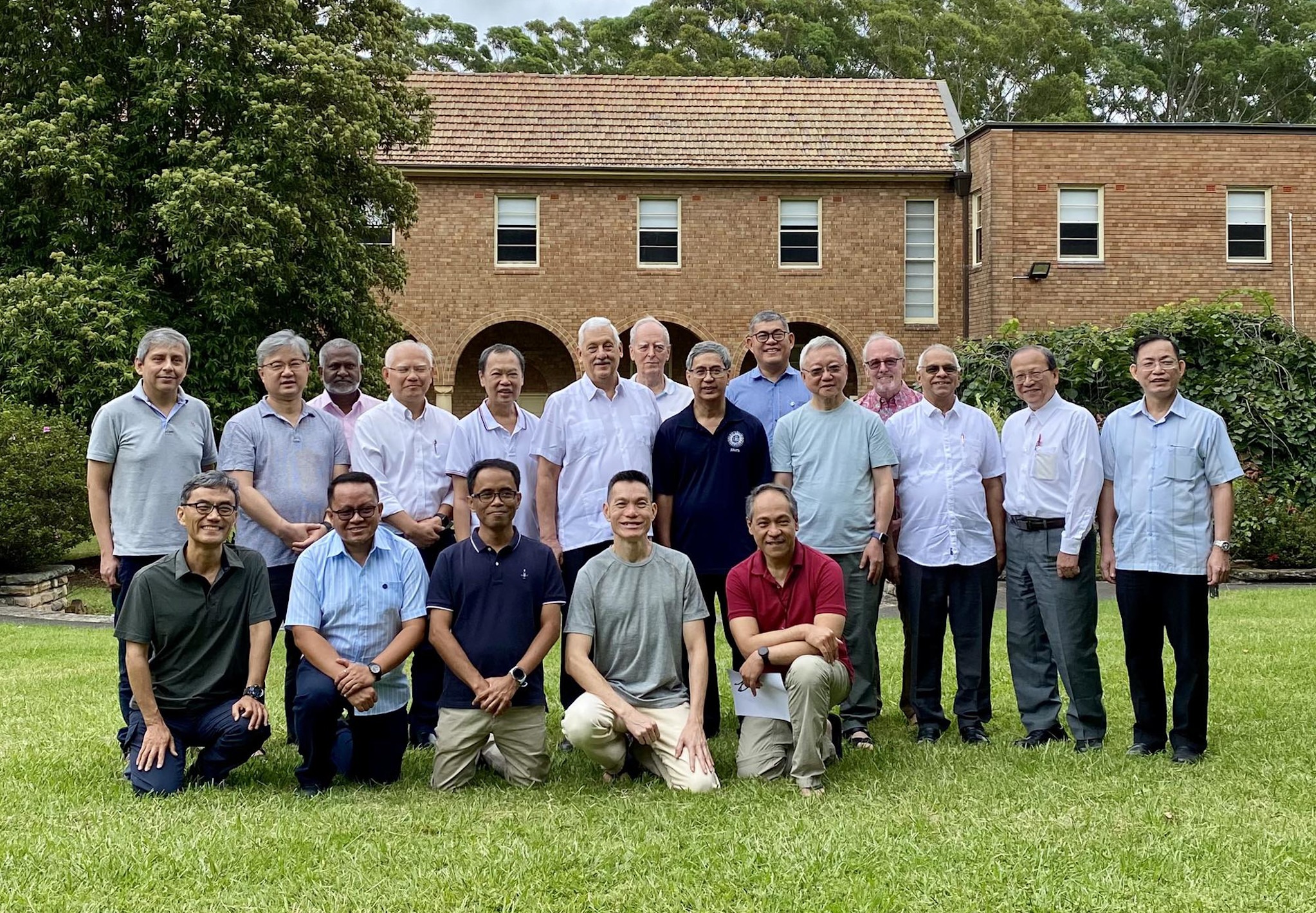The Jesuit Conference of Asia Pacific is one of six Jesuit Conferences that coordinate and facilitate the mission of the Jesuits around the world. Covering Jesuit life and service in Australia, Cambodia, China, Hong Kong, Indonesia, Japan, Korea, Laos, Macau, Malaysia, Myanmar, New Zealand, Pakistan, Philippines, Singapore, Taiwan, Thailand, Timor-Leste and Vietnam, the Jesuit Conference serves to bring an international perspective to and on local initiatives.
The Superior General of the Society of Jesus appoints a president to oversee the work of each Jesuit Conference. The President works in union with an Assembly of Major Superiors comprising the major superiors of the provinces and regions within the Jesuit Conference.
The cooperation fostered by the Jesuit Conference is an “undeniable necessity’ for the Society to realise its apostolic mission in an area with at least one third of the world’s population and a large proportion of its indigenous peoples. Christianity is a tiny minority in Asia Pacific which is home to several major religions and to ancient, deep spiritual and cultural traditions. In our Jesuit Conference are the two most populous Muslim countries, Indonesia and Pakistan; four of the five countries that adhere to Theravada Buddhism, Laos, Cambodia, Myanmar and Thailand; and all the countries of Confucian culture.
Although only the Philippines and Timor-Leste are predominantly Catholic Christian, the area is a fast-growing part of the Society of Jesus, along with other parts of Asia and Africa. The approximately 1,600 Jesuits in the Jesuit Conference of Asia Pacific account for about 10 percent of the total number of Jesuits in the world.
The Jesuit Conference of Asia Pacific began as the Bureau of Asian Affairs (BAA) in 1967 after the Jesuit General Congregation 31, which promoted international cooperation under the leadership of then Fr General Pedro Arrupe. The BAA connected Jesuits across the region for mutual solidarity and corporate international initiatives, and facilitated appropriate engagement in regional needs. During the 1970s and early 1980s, it had a number of full time coordinators for apostolic fields such as the social ministries, education, social communications and pastoral activities.
Its name was subsequently changed to the Jesuit Conference of East Asia and Oceania before it was renamed the Jesuit Conference of Asia Pacific in March 2010 to help build a greater sense of identity as one body and facilitate greater cooperation and support among its members.
The Jesuit Conference’s vision and scope have also widened to include a greater role in Society governance and leadership in facing new frontiers. Today about a dozen coordinators have international responsibilities as secretaries for their apostolic sectors, working from their ministry bases in various countries.
The Jesuit Conference of Asia Pacific is also responsible for the East Asian Pastoral Institute and the Arrupe International Residence.

